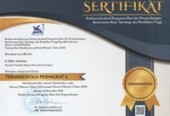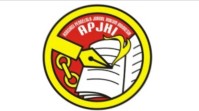Finding the Truth in A Virtual Courtroom: Criminal Trials in Indonesia during the COVID-19
DOI:
https://doi.org/10.28946/slrev.Vol7.Iss2.2465.pp228-243Keywords:
Criminal Proceedings, Technology, The COVID-19, Virtual Courtroom.Abstract
Video conferencing through video call platforms, such as Zoom and Google Meet, has become a useful option for judges holding criminal trials during the COVID-19 pandemic in many countries. This trend also occurred in Indonesia. Some judges believe that video conferencing technology will help them accomplish justice in an emergency, referring to the legal maxim 'salus populi suprema lex esto’ or ‘let the welfare of the people be the supreme law’. Although virtual trials assist courts in preventing the spread of the deadly virus, they have also affected the work of judges to reach the substantive truth. This paper examines the challenges concerning the rights of the accused and technological matters that have emerged under the use of virtual courtrooms and, in some ways, led to unfair trial procedures. We argue that the absence of laws that regulate virtual courtrooms, along with an outdated the Code of Criminal Procedure in Indonesia (KUHAP), can lead to miscarriages of justice. The arguments presented in this article are based on survey data conducted from December 2020 to January 2021. The respondents are judges from Indonesia's western, middle, and eastern regions who used video conference facilities for criminal court hearings during the COVID-19 outbreak of 2020-2021.Downloads
References
Badan Pembinaan Hukum Nasional Departemen Kehakiman dan Hak Asasi Manusia RI. Analisis Dan Evaluasi Hukum Tentang Hak-Hak Tersangka/Terdakwa Dalam KUHAP. Edited by Syaiful Watni, Sianipar Nursalam, Ninuk Arifah, and Sutriya. Jakarta: Badan Pembinaan Hukum Nasional Departemen Kehakiman dan HAM RI, 2004.
Creswell, John W., and Vicki L. Plano Clark. Designing and Conducting Mixed Methods Research. Thousand Oaks: SAGE Publications, 2018.
Dewi, Yustina Trihoni Nalesti. “Hak Konstitusionalitas Korban Atas Pengadilan HAM Yang Kompeten, Independen, Dan Imparsial.†Jurnal Konstitusi 11, no. 2 (2014): 263.
Dixit, Neha. “India’s Long Lockdown Led to Breakdown of Criminal Justice System.†https://www.aljazeera.com/, 2020. https://www.aljazeera.com/features/2020/6/2/indias-long-lockdown-led-to-breakdown-of-criminal-justice-system.
Estinian Human Rights Centre. “Coronavirus COVID-19 Outbreak in the EU Fundamental Rights Implications,†n.d.
Fajriana, Norika. “Teleconference Dalam Pemeriksaan Perkara Pidana Di Pengadilan.†Badamai Law Journal 3, no. 1 (n.d.): 61.
Garofano, Anthony. “Avoiding Virtual Justice: Video-Teleconference Testimony in Federal Criminal Trials.†Catholic University Law Review Vol. 56, no. Issue 2 (2007).
Gori, Pierpaolo, and Aniel Pahladsingh. “Fundamental Rights under Covid-19: An European Perspective on Videoconferencing in Court.†ERA Forum Journal of the Academy of European Law 21, no. 4 (Jan 2, 2021): 561–62. https://doi.org/10.1007/s12027-020-00643-5.
Gul, Parveen, and Bahadar Ali. “The Concept of a Fair Trial.†Journal of Law and Scoiety Vol. XLVII (n.d.).
Hawks, Laura, Steffie Woolhandler, and Danny McCormick. “COVID-19 in Prisons and Jails in the United States.†JAMA Internal Medicine, 2020.
Hiariej, Eddy O.S. Teori Dan Hukum Pembuktian. Jakarta: Erlangga, 2012.
Manan, Bagir. “Ex Post Facto Law, Double Jeopardy, Self Incrimination Dan Presumption of Innocnt Sebagai Hak Asasi Terdakwa.†Majalah Hukum Ikatan Hakim Indonesia No. 325 (n.d.).
Miller, J. M., and A Blumstein. “Crime, Justice & the COVID-19 Pandemic: Toward a National Research Agenda.†American Journal of Criminal Justice 45, no. 4 (2020): 515–24. https://doi.org/doi:10.1007/s12103-020-09555z.
Nelson, Febby Mutiara. “Due Process Model Dan Restorative Justice Di Indonesia: Suatu Telaah Konseptual.†Jurnal Hukum Pidana Dan Kriminologi 1, no. 1 (2020): 108.
Badan Pusat Statistik. "Perilaku Masyarakat Di Masa Pandemi COVID-19." Accessed Jan 10, 2021. https://www.bps.go.id/publication/download.html?nrbvfeve=ZjM3NmRjMzNjZmNkZWVjNGE1MTRmMDlj&xzmn=aHR0cHM6Ly93d3cuYnBzLmdvLmlkL3B1YmxpY2F0aW9uLzIwMjAvMDkvMjgvZjM3NmRjMzNjZmNkZWVjNGE1MTRmMDljL3BlcmlsYWt1LW1hc3lhcmFrYXQtZGktbWFzYS1wYW5kZW1pLWNvdmlkLTE5Lmh0bWw%3D&twoadfnoarfeauf=MjAyMy0wNy0wOCAyMDoxMToxNw%3D%3D.
Puddister, Kate, and Tamara A. Small. “Trial by Zoom? The Response to COVID-19 by Canada’s Courts.†Canadian Journal of Political Science 53, no. 2 (Jun 19, 2020): 373–77. https://doi.org/10.1017/S0008423920000505.
Reiling, Dory. Technology for Justice. Amsterdam: Leiden University Press, 2009.
Shmagun, H.A. “From a Small State Towards a Matured Digital Society: The Case Study of Estonia.†Jurnal BSU 3 (2015): 105–6.
Soeharto. Perlindungan Hak Tersangka, Terdakwa, Dan Korban Tindak Pidana Terorisme. Bandung: Refika Aditama, 2007.
Stepanov, Oleg A., Denis A. Pechegin, Mariia O. Dolova, and Alexander A. Trefilov. “Justice and Digitalization as Mutually Determining Factors of Criminal - Jurisdictional Activity Development.†Bratislava Law Review Vol.3, No. (2019).
Stepanov, Oleg, Denis Pechegin, Mariia Dolova, and Alexander Trefilov. “Justice and Digitalization as Mutually Determining Factors of Criminal-Jurisdictional Activity Development.†Bratislava Law Review 3, no. 2 (December 31, 2019): 64. https://doi.org/10.46282/blr.2019.3.2.147.
Treadway, Johnson Molly, and Elizabeth C. Wiggins. “Videoconferencing in Criminal Proceedings: Legal and Empirical Issues and Directions for Research.†Journal LAW & POLICY 28 (2006): 213.
Vaid, Dharvi. “How Coronavirus Is Propelling the Rise of Online Courts in India.†https://www.dw.com/en/top-stories/s-9097, 2020. https://www.dw.com/en/how-coronavirus-is-propelling-the-rise-of-online-courts-in-india/a-53774109.
Wood, Hecht McCornack Rosenthal, and Levi. “Coping with COVID: Continuity and Change in the Courts.†Judicature 104, no. 2 (2020): 22.















